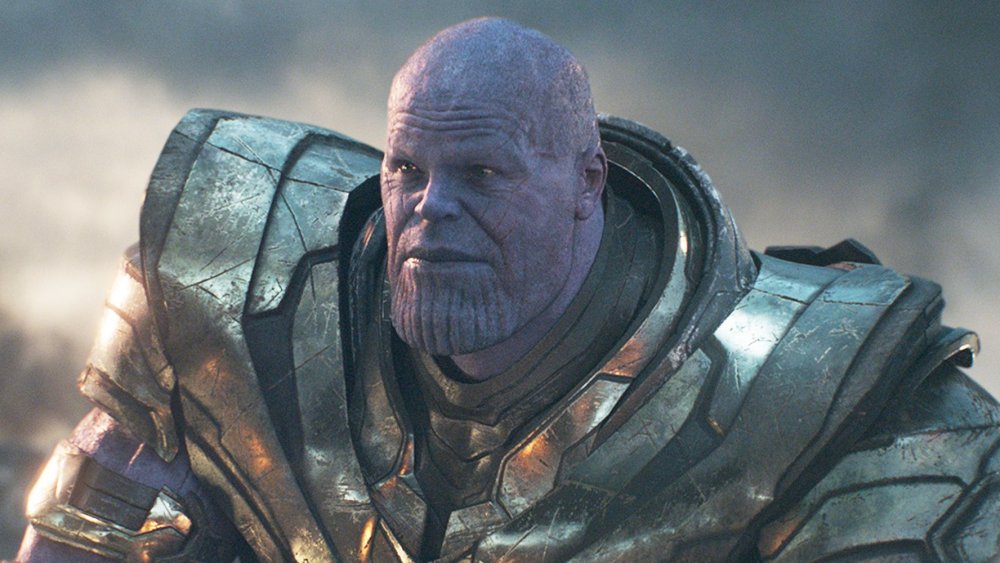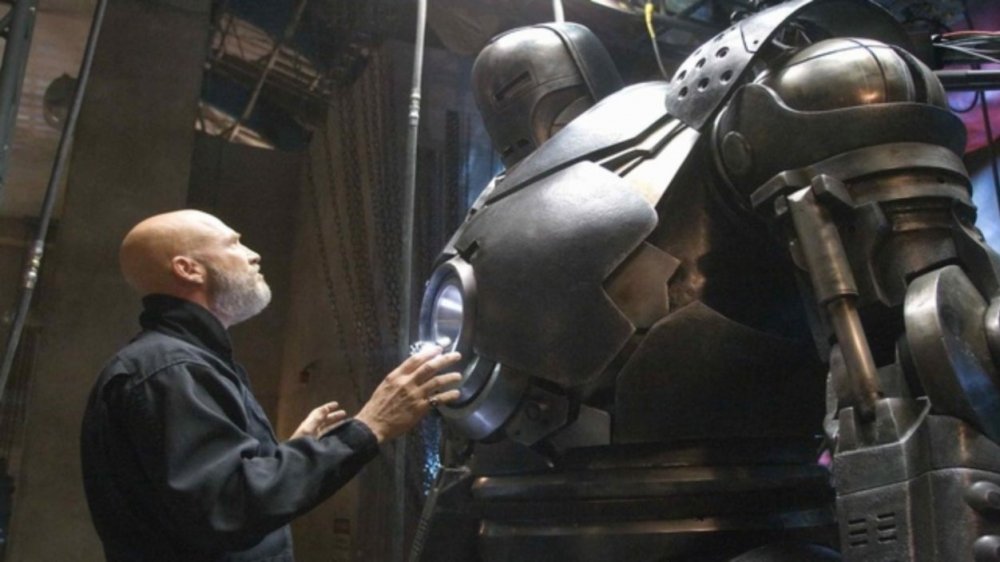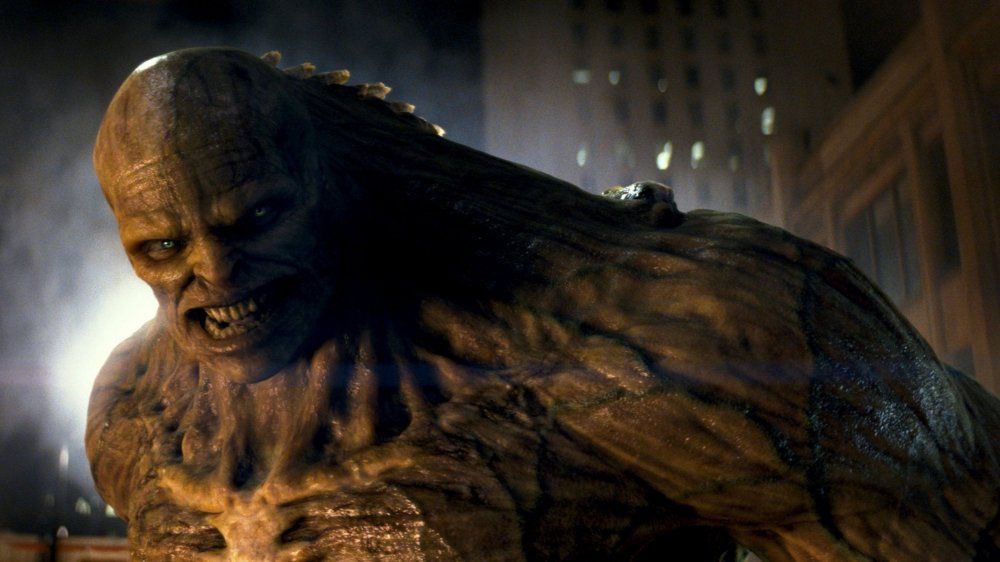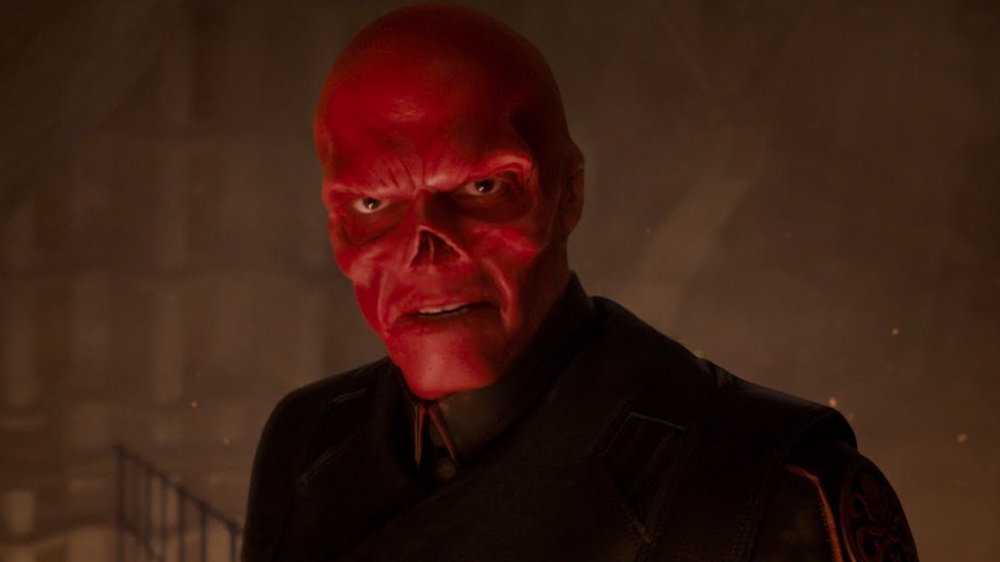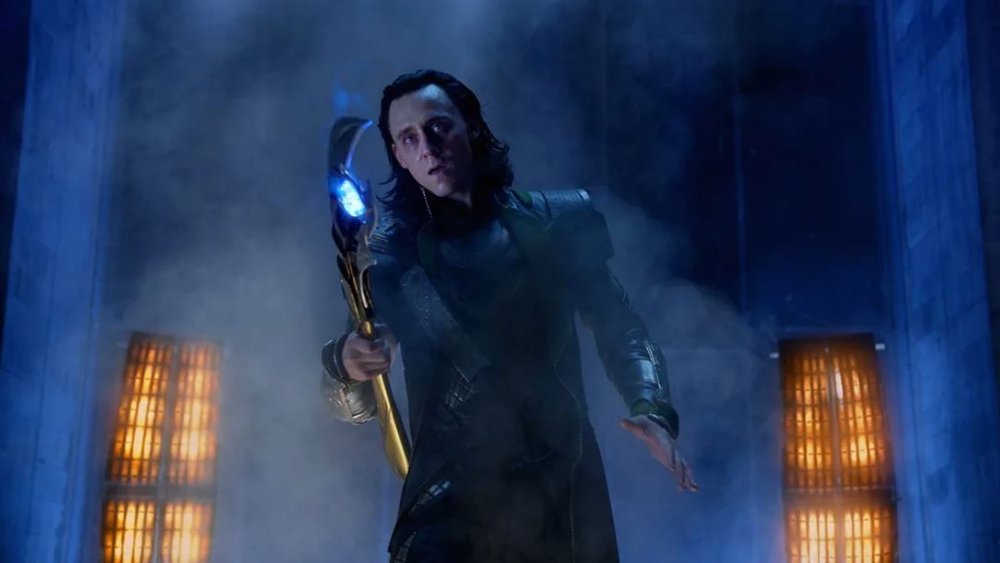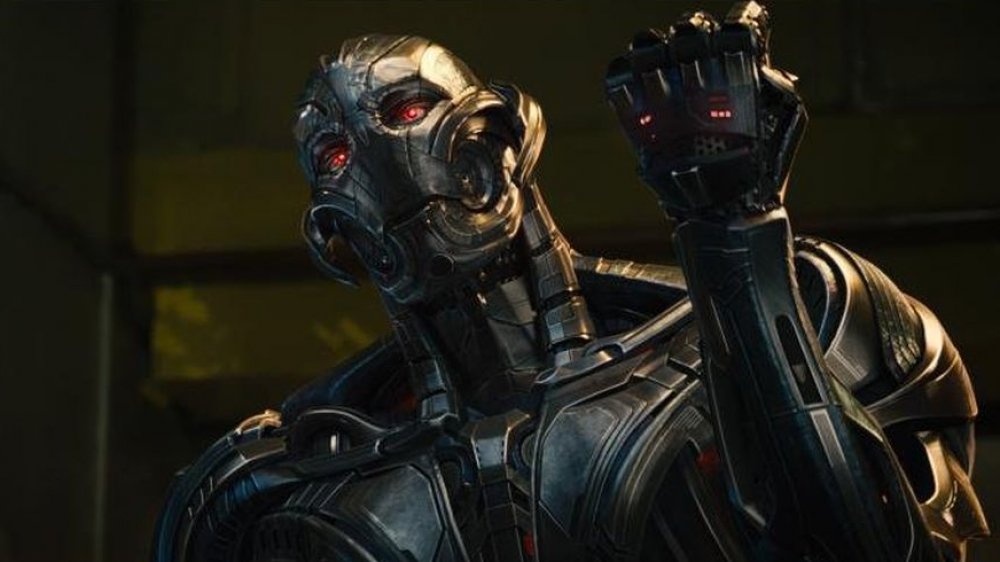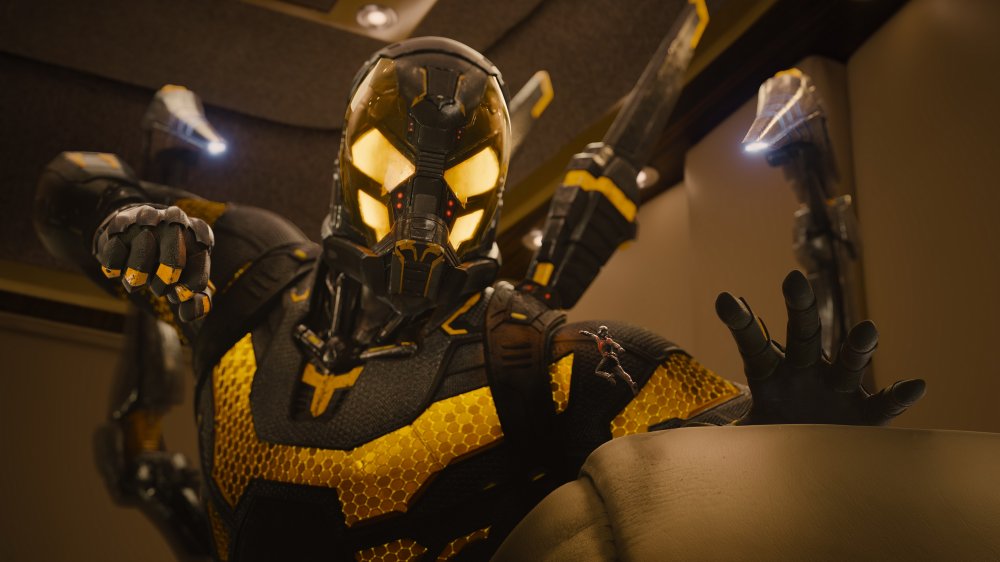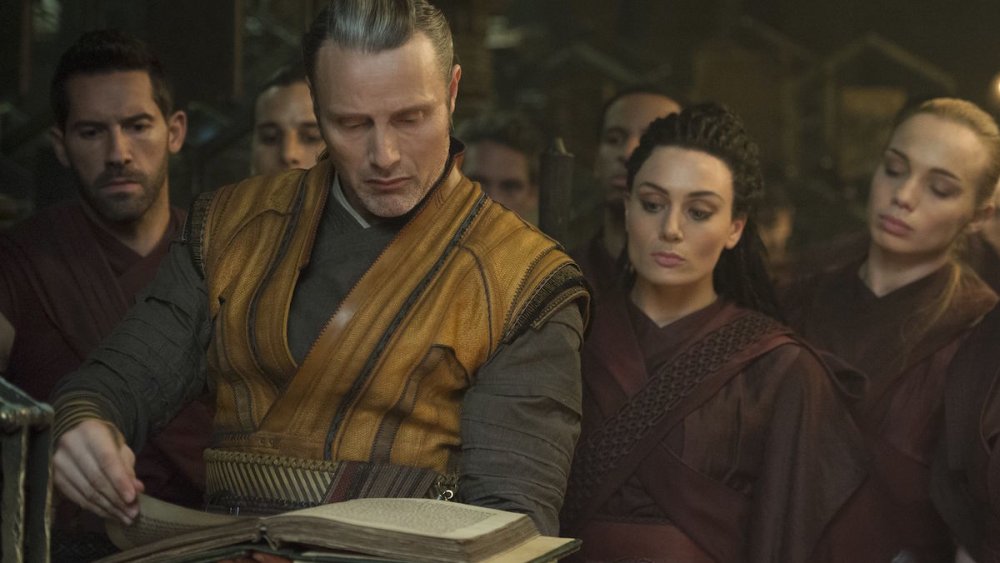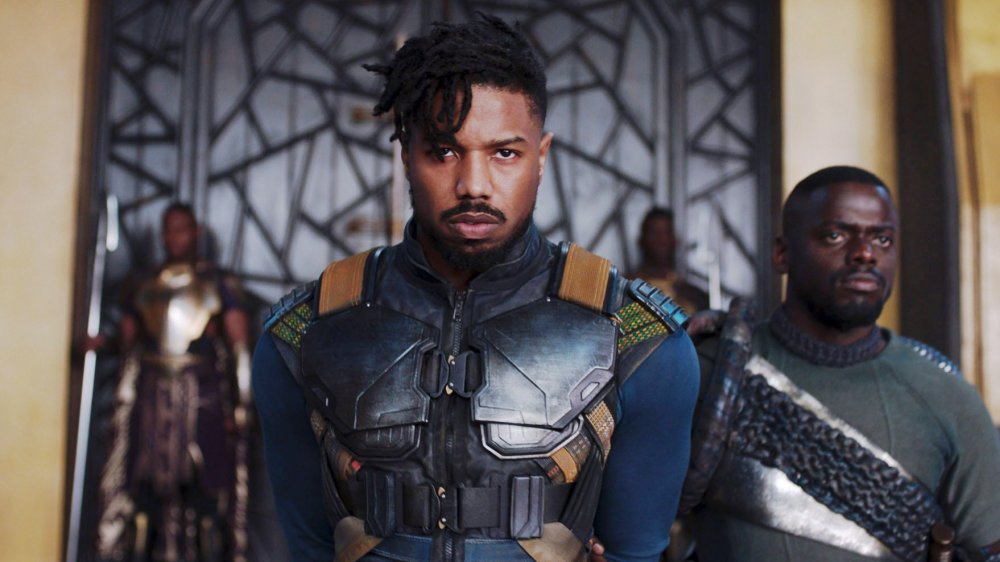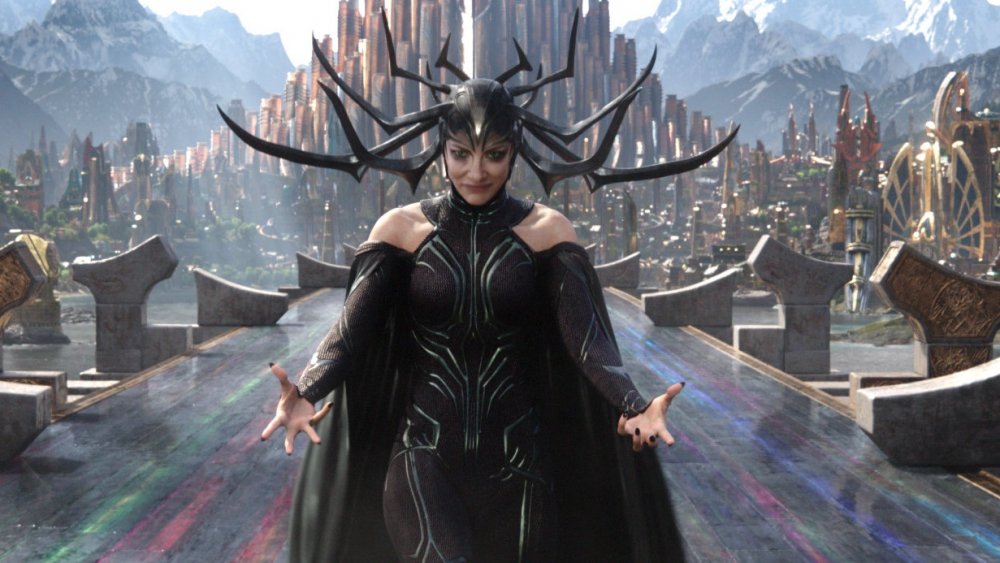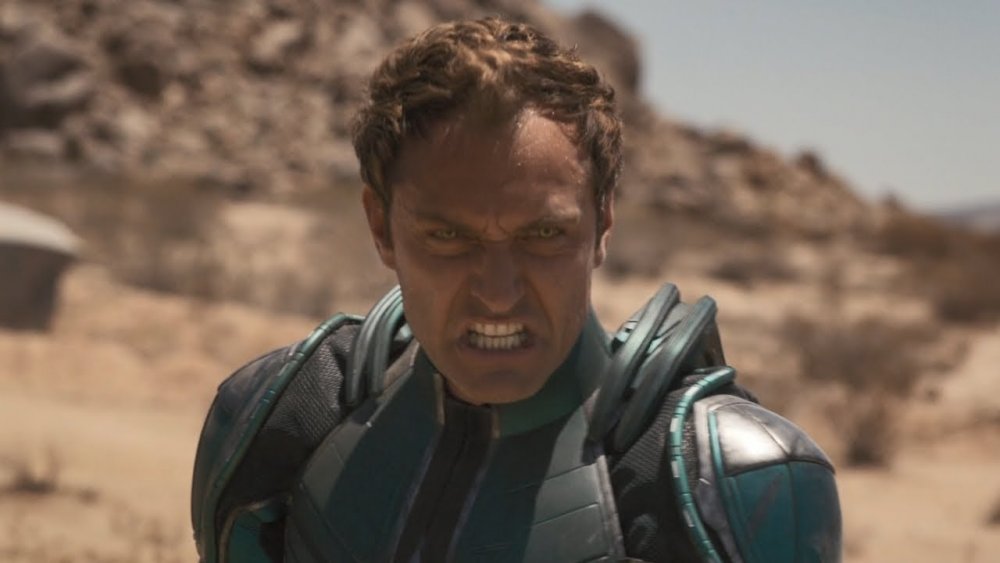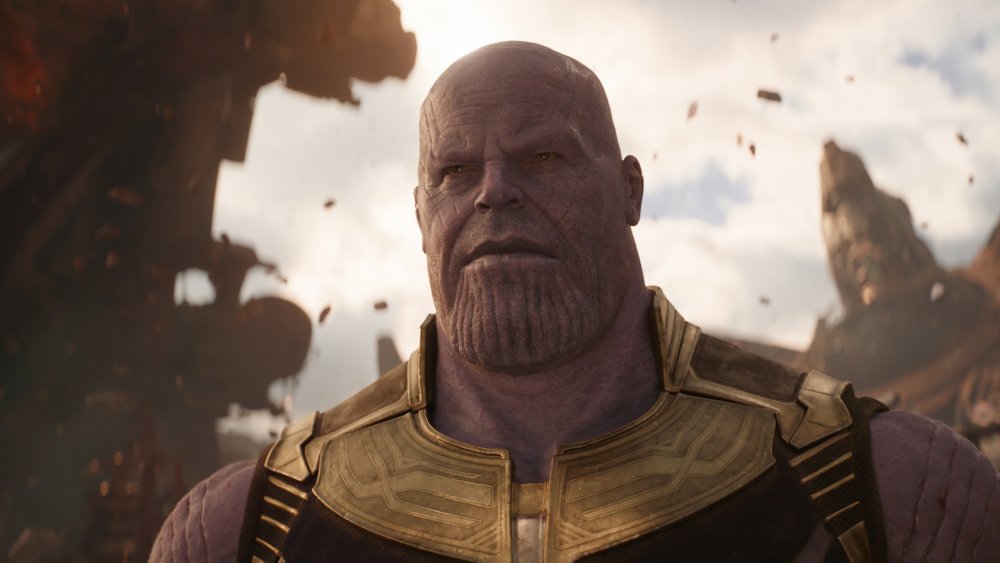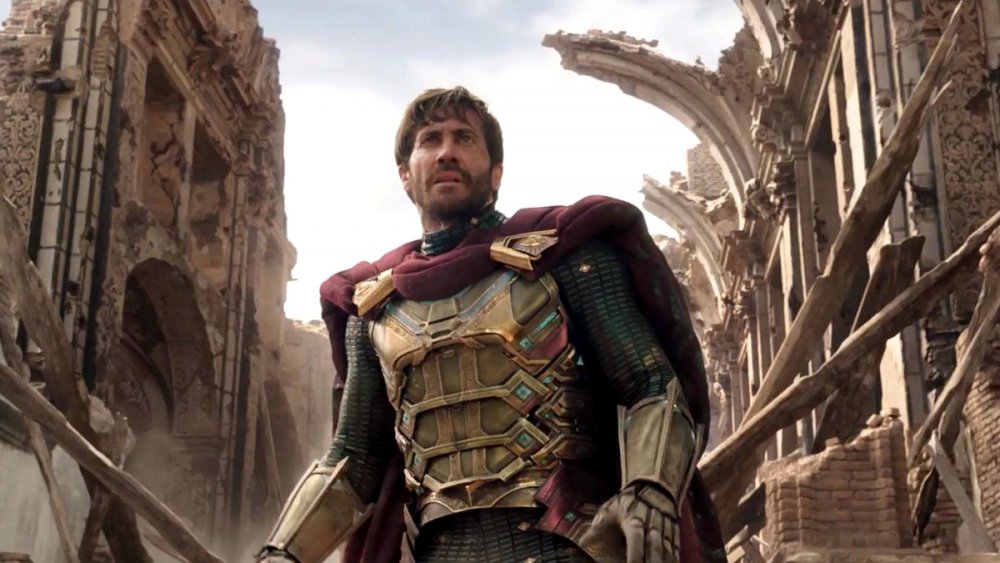The Biggest Weakness Of These MCU Villains Explained
While the Marvel Cinematic Universe has been a bona fide global sensation for almost as long as it has existed, its villains have been widely considered one of the franchise's weak spots. Occasionally, a villain manages to break away from the pack and distinguish him or herself, but for every Thanos or Killmonger, there's been a Malekith or Ronan the Accuser — bad guys who can wind up feeling woefully underdeveloped next to the MCU's thoughtfully fleshed-out heroes.
Yet even the MCU's strongest and most charismatic villains have weak spots of their own, through which the hero winds up gaining the upper hand and saving the day. Often, the greatest weakness of the villain actually mirrors that of the hero, meaning that in overcoming the bad guy, the protagonist also has to best their own inner demons. Below, we take a look at several of Marvel's most distinctive baddies and uncover the Achilles' heel that allowed their opponents to ultimately prevail.
Iron Monger was brought down by greed
The MCU as we know it owes a debt to Iron Man, which introduced the world to Robert Downey Jr. as Tony Stark and set up the idea of a cinematic universe. Yet as iconic as the first Iron Man film is, we wouldn't blame you for forgetting about Obadiah Stane, the opponent who inadvertently pushed Tony to transform into a world-saving, self-sacrificing hero. Stane was an old friend of Howard Stark, Tony's father, and served as CEO of Stark Industries after Howard's death until Tony was able to take over.
For years, Stane coveted Tony's role, and he wound up throwing in his lot with the Ten Rings in an effort to get Tony out of the picture and regain control of the company. Stane wasn't content to be Tony's mentor and second-in-command, especially when Tony's conscience started cutting into Stark Industries' bottom line. He hoped to seize back the company from its idealistic CEO, and he created the Iron Monger suit to help him do just that.
Unfortunately for Stane, the greed that motivated him to steal a company was also what led to his ultimate demise. Even after he'd seemingly defeated Tony, he continued to attack, ignoring the many indications around him that his suit and location were no longer safe. He was so focused on his prize that it didn't occur to him that Tony would be willing to give up everything if it kept others safe. Of course, Tony survived their final battle, but Stane's greed kept him from seeing the danger he could've otherwise avoided.
Abomination's thirst for power was his weakness
While Bruce Banner never wanted or asked for the powers he gained in the accident that transformed him into the Hulk, the same can't be said for Emil Blonsky, the special-ops officer who wound up gaining Hulk-like powers via a transfusion of Banner's blood in The Incredible Hulk. Bruce didn't ask for the Hulk's abilities, but Blonsky craved the Hulk's power, and he was willing to do or risk anything to gain that strength for himself. Ignoring the warnings of others, Blonsky pushed ahead with the transfusion, which transformed him into the Hulk-sized Abomination.
Banner's experience as the Hulk always came with an inner struggle, as Banner strained to hold the worst of Hulk's violent and destructive impulses at bay. The Abomination, though, had no such compunction, since brutal, god-like power was exactly what he craved. This led to the Abomination wreaking havoc in New York City, which then forced the Hulk and the United States Army to focus all of their efforts on stopping him. If he hadn't been so power-hungry, he could've kept his military allies and continued to paint the Hulk as the bad guy. Instead, his unwillingness to curb his thirst for power left both his friends and opponents with no other choice than to temporarily unite against him.
Red Skull was undone by his lack of empathy
Unlike many other Marvel villains, who tend to be lone megalomaniacs without much of a defined ideology outside of their own individual power, Johann Schmidt subscribed to a hateful and destructive worldview that ignited an entire movement in Captain America: The First Avenger. Schmidt was the leader of HYDRA, an offshoot of the Nazi party during World War II. However, Schmidt split with Hitler when it came to the idea of a master race, and he believed that he himself could be made superior to the rest of humanity through a super soldier serum that enhanced his abilities, turning him into Red Skull.
On top of his already dehumanizing Nazi worldview, Schmidt aimed to personally control the entire world, wiping out anyone who stood in his way. He didn't care about other people at all — not even his own allies — and had no qualms discarding people once they'd outlived their usefulness to him. It was this callous and sweeping lack of empathy that led to his defeat at the hands of Captain America. As Steve Rogers fought to keep Red Skull from using the Tesseract to subjugate the world, Red Skull tried to tempt him, saying that Steve could be like a god with his powers. But he underestimated how much Steve cared for others, and his taunts pushed Steve to fight back even harder. It was the fight with a righteously indignant Steve that led to the Tesseract becoming dislodged, and when Red Skull picked it up, he was transported to a distant galaxy, putting an end to his ambitions.
Loki's inferiority complex led to some terrible decisions
It's no secret that the children of Odin could all use quite a bit of family therapy, although each of them seems to struggle with a different issue. When it comes to the youngest Odinson, Loki wrestles with an inferiority complex large enough to give the Hulk a run for his money. Even before he learned that he was actually the biological son of the Frost Giant king Laufey in Thor, Loki felt like he couldn't ever get out of his brother Thor's shadow. After learning the truth of his origins, Loki's insecurity kicked into overdrive, and he compensated by attempting to get rid of his brother entirely so that he wouldn't have to compete with him anymore. However, once Loki was defeated and shown mercy by Thor, Loki opted to drop into the vast emptiness of space rather than face the consequences of what he'd done.
Later, when Loki returned in The Avengers, it was as a puppet of Thanos, but both then and during his later appearances in Thor: The Dark World and Thor: Ragnarok, the greatest opponent Loki faced was his own self-doubt. Over and over, he attempted to prove that he was worthy of something he already had — his family's love. At first, he acted out in unhealthy and harmful ways in an attempt to convince both his relatives and himself that he didn't need anything from them, even though he obviously yearned for their approval. But gradually, as he learned to accept that Thor had always loved him just the way he was, he was able to work productively alongside his brother, instead of feeling threatened by him.
Ultron's rigid worldview kept him from seeing the big picture
As a literal robot, it's unsurprising that Ultron adhered pretty stringently to rules of his own making. However, his inability to compromise or bend his rigid views is what ultimately led to his downfall in Avengers: Age of Ultron. A product of Tony Stark's peacekeeping program, which was subsequently beefed up by the Mind Stone, Ultron's core objective was to protect the Earth from future threats. Unfortunately for everyone, after mulling over his mission for a while, Ultron determined that the biggest threat to Earth was, in fact, humans, and he set about attempting to eradicate them.
This fixed mindset that sent Ultron on his destructive path was also what caused his end. Even after meeting opposition from the Vision, who was also an artificial being created using Stark's code and the Mind Stone, Ultron couldn't be reasoned with. He was so set in his beliefs that, after the Battle of Sokovia, the Avengers were left with no choice but to completely destroy him. If Ultron had been able to change his mind, perhaps Tony would've found a way to allow him to exist, alongside his other artificial intelligences. As it was, Ultron's single-mindedness paved the way for his complete annihilation.
Yellowjacket's ambition was this MCU villain's biggest weakness
Many of the villains in the MCU are ambitious to a fault, but Darren Cross took ambition to new (tiny) heights when he tried to take down Ant-Man. The CEO of Hank Pym's former company, it wasn't enough for Cross to merely run a vastly successful tech corporation. He felt that he could improve on Pym's technology and achieve even grander levels of success for himself. Cross' relentless ladder-climbing led to him aligning himself with HYDRA and the Ten Rings, which of course left Pym with no other choice than to work with his daughter, Hope, and Scott Lang to destroy the company he'd built in order to keep Cross from capitalizing on his weaponized technology.
Enraged at Pym and Scott Lang for thwarting his plans, Cross sought his revenge as Yellowjacket, determined to take everything away from Lang, just as he felt Lang had done to him. Cross became so fixated on destroying Lang that he attempted to kill his family, but he was thwarted by Ant-Man, who sabotaged the Yellowjacket suit so that Cross was killed. However, if Cross hadn't been so single-minded in his pursuit of professional success that he was willing to cross any line in order to achieve it, he would've never found himself in that position to begin with.
Kaecilius' impatience led to his downfall
One of the prevailing themes in Doctor Strange is patience, a virtue that seems to taunt Stephen Strange at every turn. Throughout the film, Strange is forced to be patient for things he desperately wants — to regain the use of his hands, to master the Mystic Arts, to wear down Dormammu enough to ultimately prevail — but as much as Strange wants to skip ahead to the ending, he never does. Sure, he reads some books he's not supposed to in an effort to speed up the process, but he doesn't take shortcuts to achieve his goals, understanding that the process of getting there, however frustrating, is necessary.
Kaecilius, on the other hand, is willing to cut each and every corner he can in order to get where he wants to be. Numerous times throughout the film, he skips the line in order to reap the reward at the end, refusing to put in the work that should've been necessary to get there. Yet it's this very desire to cut corners that allows Strange to get the upper hand. After Kaecilius and his followers believe they're successful in their pursuit of eternal life, they're shocked when the spell sends them to the Dark Dimension. It turns out that in stealing the spell and failing to read the rest of the book, Kaecilius had overlooked the warning that the "eternal life" he sought came at an incredible cost. If he hadn't been in such a rush to get to the spell, he might've understood that he shouldn't be casting it at all.
Killmonger was an MCU villain brought down by extremism
Superhero movies tend to be hard sells when it comes to critical acknowledgement, but every now and then, one manages to break through as an awards contender because it's simply too compelling to ignore. This was the case with Black Panther, and a big part of that film's success was thanks to its villain, Erik Killmonger. Unlike most Marvel movies, which tend to open with the hero's origin story, Black Panther started with Killmonger's. Granted, we didn't know it at the time, but when the truth was revealed in one of Marvel's best twists, the haunting opening scene made him incredibly sympathetic.
In fact, as the film progressed, some of the film's good guys even seemed to agree with Killmonger's points. Nakia also thought that Wakanda needed to venture outside its own borders to right injustice in the world, and T'Challa himself conceded that his father, T'Chaka, had implemented harmful policies and had been wrong to abandon young Erik.
Yet rather than cultivate the favor of people already inclined to agree with him, Killmonger wound up pushing them away with his uncompromising extremist views. Rather than adopt Nakia's more measured approach to world outreach, Killmonger's plan was to stoke civil uprisings by flooding the world with Wakandan weapons. His all-or-nothing approach to achieving his vision meant that rather than finding an ally in the king of Wakanda, he found an opponent, and the two wound up battling to the death.
Hela's superiority complex left her without any followers
While Loki spent multiple movies struggling to dig out from under a hefty pile of self-doubt to prove his worthiness, his older sister, Hela, had the opposite problem in Thor: Ragnarok. She was so convinced that she should be on top that she thought all she'd have to do was show up, and people would fall in line. Granted, she was a formidable opponent, as evidenced by her ability to take out the Warriors Three and the armies of Asgard single-handedly, but she inspired no loyalty, allowing her entitlement to lull her into thinking she'd prevail simply because she thought she should.
Hela's sense of superiority kept her from winning anyone to her cause, with even her right-hand lieutenant abandoning ship when he couldn't stomach any more of her actions. Instead of working with her brothers, she alienated them both in her attempts to subjugate them, leaving herself wide open for them to team up against her. If she'd taken the time to actually interact with the people of Asgard instead of terrorizing them, or if she'd collaborated with her brothers instead of opposing them, it may have led to an Asgard that all three of Odin's children could've live in together, instead of one that had to be razed into nothing.
Yon-Rogg's sexism caused him to underestimate his opponent
Although Carol Danvers faces a variety of opponents in Captain Marvel, Yon-Rogg is the most insidious, since he spends most of the film pretending to be her mentor and ally. However, even when he's being set up as Carol's friend, there are hints of darkness lying beneath his friendly surface. Multiple times, he attempts to diminish her power under the guise of "training" her, accusing her of being "too emotional" even when she's nearly expressionless, pushing her to hold back rather than develop her strength, and discouraging her from exploring the limits of her powers. He claims this is for her own good, to teach her control, but it's really designed to keep her weak, so that he can hold the power in the relationship.
Gradually, as Carol uncovers the truth of who she is, she begins to realize that Yon-Rogg's "teachings" were more like handcuffs, designed to hold her back. But Carol stepping into her own power feels like a threat to Yon-Rogg, who wishes to keep her small so that he can feel big, important, and powerful. Strip away the superpowers, and it's a story all too familiar for many women who've been abused by insecure men. Yon-Rogg's weakness doesn't have anything to do with his physical capabilities but everything to do with how threatened he feels by a strong woman. It's an attitude that leads to him getting blasted into a rock because once Carol figures out what he's doing, she has no tolerance for it anymore.
Thanos' greatest weakness was his arrogance
There isn't a single Marvel villain who doesn't have some degree of hubris in their character, but none displays this trait more than Thanos, whose plan to eliminate half of all life in the universe culminates in Avengers: Infinity War and Avengers: Endgame. Thanos is convinced that he knows what's best for the entire universe, and that it's up to him to set things on a path that only he's allowed to determine. He takes counsel from no one, and anytime someone pushes back against his plan, he dismisses their concerns without considering them.
Granted, Thanos is incredibly powerful and very nearly succeeds, despite his arrogance. But in viewing himself and his plan as "inevitable," Thanos doesn't ever consider that there may be value in individual lives, teamwork, and self-sacrifice. He views the Avengers as pests to be swatted down rather than serious threats, and it never occurs to him that someone else could be willing to sacrifice everything to preserve the lives Thanos wants to take. The Avengers fight their battle knowing the odds are against them, which makes them willing to do "whatever it takes" to earn their victory, even if it costs them everything. Thanos, on the other hand, never even considers that he might lose, which cracks open the door for exactly that to happen.
Mysterio was an MCU villain destroyed by bitterness
For the first act of Spider-Man: Far From Home, Quentin Beck seems like a pretty good guy. He's funny, he's charming, and he seems like exactly the sort of smart and nurturing mentor figure Peter Parker is looking for. Unfortunately, he's also a con man nursing a serious grudge against his former employer, and he's decided that the whole world has to pay for the wrong that was done to him.
To be fair, Tony Stark was indeed flippant about the technology Beck spent his whole life developing, and he did actually lose his job as a result. Beck has every right to be mad. But the lengths he goes to in drawing together a group of similarly wronged ex-employees and hatching a plan to destroy entire cities in order to usurp Tony's legacy majorly crosses the line. It's this bitterness that prompts Mysterio to keep going way past the time when he should've stopped and that pushes him to keep attacking Peter with his drones even after they start malfunctioning, which ultimately leads to his death.
